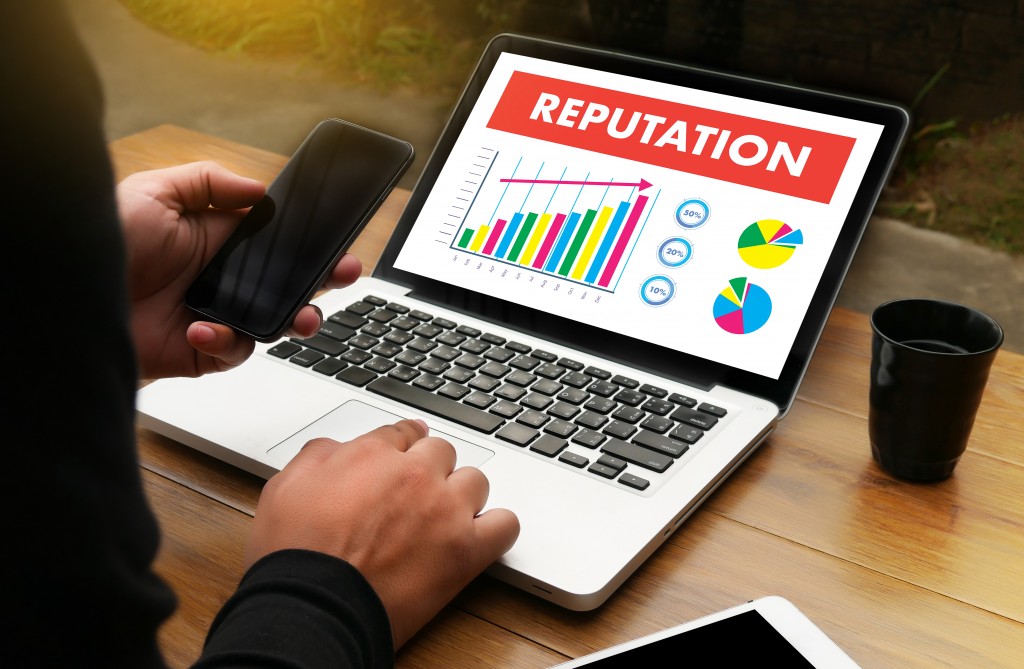Before the advent of the Internet, companies do marketing through physical mediums, such as radio, print ads on newspapers, and television.
Times, however, have changed. The advent of digital marketing made promoting a product or service easy without the need for a huge office, a large department consisting of talented marketers and advertisers, and even a company environment. This also meant that marketing firms could avoid the drawbacks present in conventional marketing, such as zero control over timing and minimal interaction with the audience.
Despite how beneficial online marketing appears, companies should be aware of the traditional marketing risks present in the online marketing space. When your business is doing digital marketing, you need to handle these risks appropriately and prevent them from becoming a problem. Measures, such as performing an enterprise risk assessment and getting professional liability insurance, can mitigate these risks.
Being familiar with the conventional marketing risks present in the digital world is equally important, as you could use the knowledge to prevent making bad decisions that could ruin your business. A few of these risks are the following:
Defamation
If the advertisement you put up online makes disparaging and false remarks about a person, a company, or a brand, you could face a lawsuit. What you did is a prime example of tort.
Here’s an example: Let’s say you’re looking to differentiate a product from that of a competitor. Although the ad can promote the product’s unique selling points, you cannot make false statements about a competitor’s goods to make your product appear superior.
Some brands push the envelope on what people can consider as defamatory or cheeky. One example is the roasting model used by Wendy’s. The popular fast-food chain grew in popularity when it began posting sarcastic remarks towards rivals. It also led to better sales and a rise in the stock value.
The roasting model, however, is incredibly risky. A company that takes the jokes too far could end up with a lawsuit on their desk.
Your business can mitigate the risk of defamation by screening all the information for publishing on social media and other digital channels. You don’t want to end up posting or tweeting something and then taking back what you said. Remember that what happens on the web stays on the web. If you remove a tweet, for instance, people could still retrieve that by using tools to search for deleted tweets.
Reputational Blunders
Cultural appropriation and tasteless jokes are common reputational missteps present in online marketing. If they leave a bad taste in people’s mouths, they could severely and permanently ruin the goodwill of a business.
Additionally, the improper use of social media can cause a PR gaffe. The wrong choice of words, for instance, could potentially destroy a company’s reputation.
Take the infamous United Airlines flight as an example. Due to an overbooked flight, the airline had to “re-accommodate” a passenger. This, unfortunately, resulted in airport security forces brutally dragging out a Kentucky doctor from his seat. This terrible incident went viral on social media and generated negative publicity.
The situation turned for the worse when Oscar Munoz, the United Airlines CEO at the time, justified the company’s “re-accommodation” measures on Twitter. His tweet, unfortunately, wasn’t enough to quell the anger and mitigate the damage done to the poor passenger. A couple of days later, he tweeted again — this time with a genuine apology. Sadly, he could no longer reverse the damage done. His poor online crisis handling was as disastrous as yanking off a passenger on a cabin seat.
Your business can minimize this digital risk by assigning a team to evaluate any kind of content that will go on the web. Always err on the side of caution and make sure that people won’t take your ads or message the wrong way.
Copyright Infringement

This encompasses any form of content on the web: videos, pictures, text, etc. Although a large amount of fair use material is readily available online, don’t use copyrighted content without permission.
This includes videos that go viral online. Many digital media firms purchase these videos quickly, then sell the license afterward. If you use a viral video for a digital marketing campaign without consent, the copyright owner might insist on their rights, demand that you take down or remove the video, and obtain compensation.
You could avoid committing copyright infringement by being creative. Come up with ideas that people haven’t seen before and use them to produce compelling and original ads.
These are just a few of the digital marketing risks you should know and avoid. By practicing common sense and reasonable care, you could avoid risky pitfalls that could destroy the goodwill or reputation of your brand or company.

